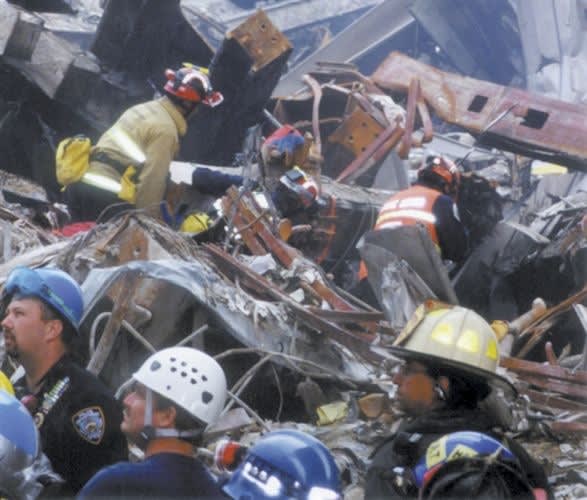Without warning, the way we all do business in the field has been unalterably changed. The dramatic events in our country touched every American. Those in emergency services jobs - cops, firefighters, EMTs, doctors, nurses and countless others - were particularly affected.
Many traditional roles of law enforcement and corresponding training are already starting to be revisited.
What's Changing?
I've spoken with dozens of officers of every rank as well as manufacturers since the attack. There seem to be common threads that affect the way police will conduct themselves in the future and may change the way cops think of themselves forever.
First, there is an overpowering commitment we will be prepared for the next event. Not "this will never happen again" but a seeming acceptance we have entered the world arena. "We are now subject to the same ordeals that other nations have endured for decades," observed SWAT Officer Sammy Reese.
This acceptance of what we all hope will not be the inevitable has inspired law enforcement, government and manufacturers to unite with a common goal: Acquire the best tools possible to respond as effectively as possible to terrorist threats.
But How?
This means that tools, techniques, tactics and training for law enforcement will change. Some changes will be subtle but others will be significant.
From equipment to mind set, a new way of thinking and responding is beginning to gel. Some possibilities, as discussed by industry officials, officers and trainers during our conversations include:
A universal move to patrol rifles for all beat cars.
Updated hazardous chemical mask technology and increased training in toxic and biological threat response by first-responders.
More training for street-level officers in recognizing possible terrorist threats or operations.
A relaxation of the hysteria over "profiling" and the adoption, openly, of profiling as a powerful tool to apprehend potential terrorists.
A more patient, understanding response from the general public when they are inconvenienced by the need for higher security responses by police.
Increased security at all public events of significance.
Increased focus on less-lethal technology, especially for on-board applications on in-flight airliners.
Increase in K-9 units and a corresponding increase in the training of "bomb" recognition dogs.
"I think we'll see an increase in research in specialty ammunition, both for police and specialized units, to combat potential problems associated with gunfights in crowded areas," said Bernie Ness of Federal Cartridge Corporation.
More law enforcement cooperation with federal units conducting anti-terrorist investigations. Some of the expertise may spill over into the anti-gang arenas.
Industry will focus on the development of new "high-tech" equipment, software and related products offering higher levels of intelligence-gathering capability.
Cross-platform database accessibility enhancements will allow any agency, in any state, to determine criminal history and any international, federal, state or local wants.
Increased body armor technology allowing more effective response.
A significant improvement in inter-agency communication ability.
Increased involvement by specialized military units in some police roles as a support service to civilian law enforcement officers.
Increased training in dealing with major disasters and an enhancement in the ability of first-responders to set up and run emergency operations centers.
What's Next?
Virtually everyone I spoke with ended our conversations with a reminder that an over-reaction can be as bad as an under-reaction.
"Cops are realists," said Sgt. Dave Douglas. "We're already learning what went wrong and how we can correct it in the future. It's important now that we avail ourselves of the technology necessary to win, but don't lose sight of our basic jobs; we're still working cops with a cop's job to do."
While the tools, tactics and training may change, the role of law enforcement will only be enhanced ... not changed.












